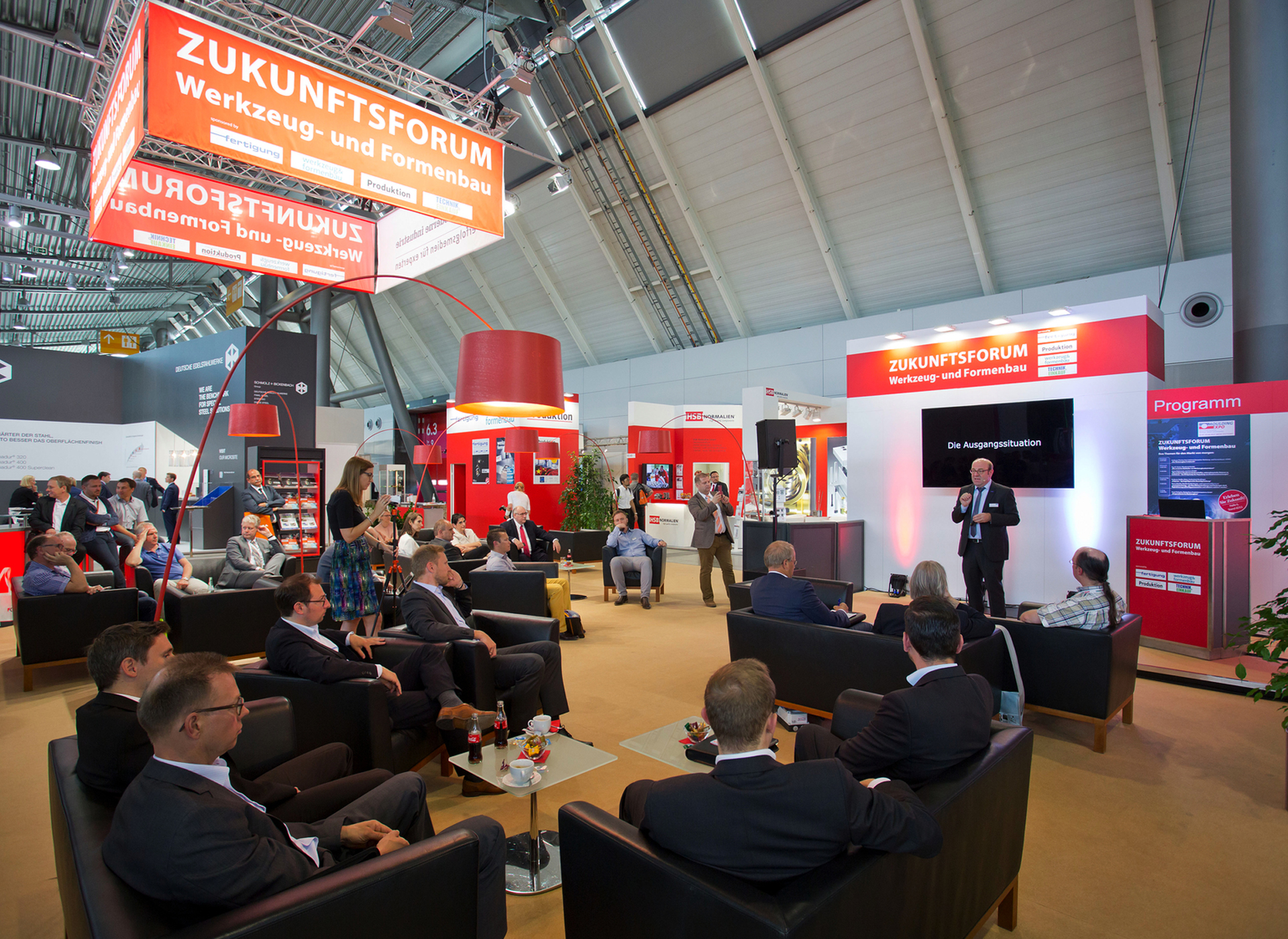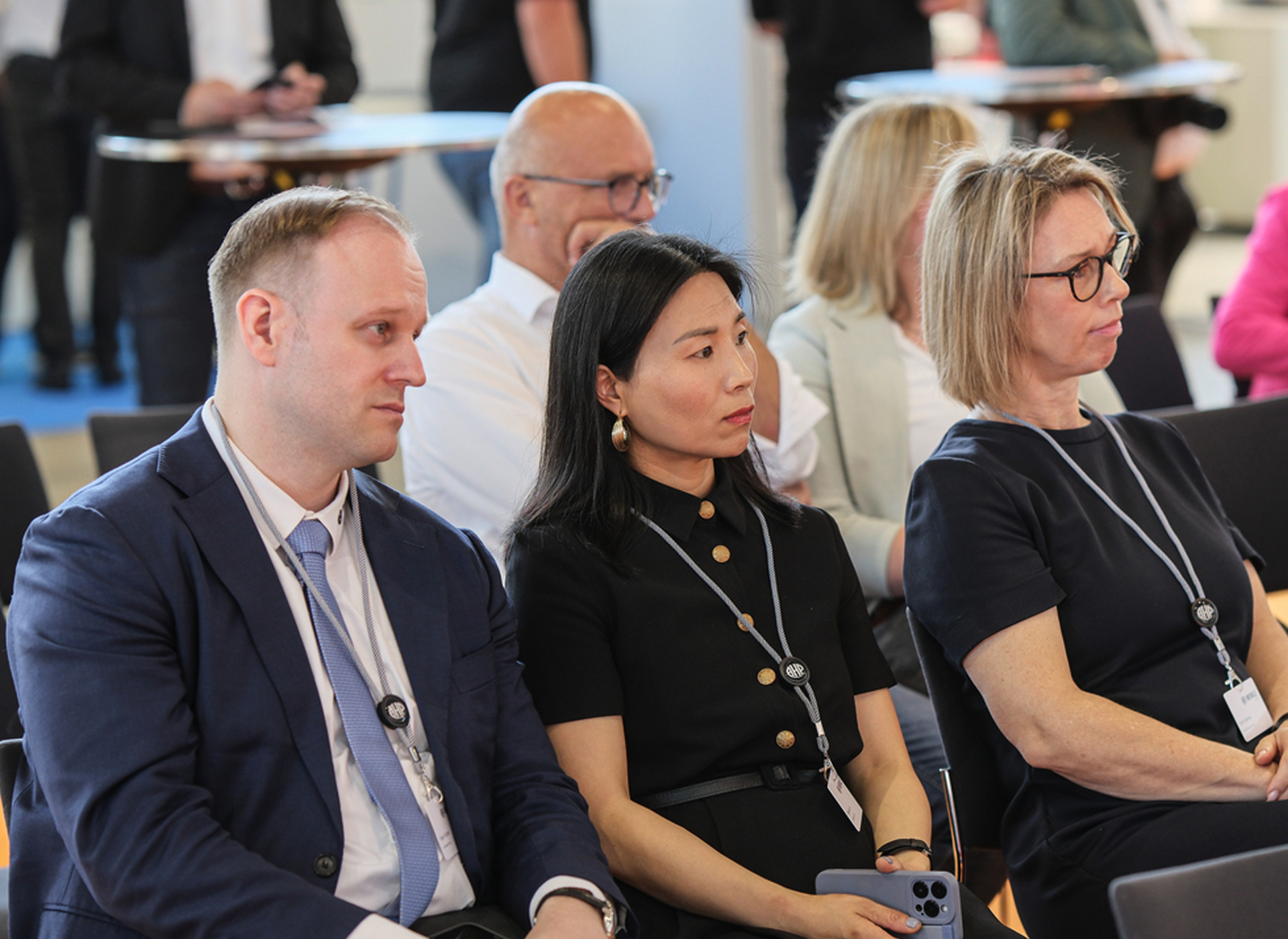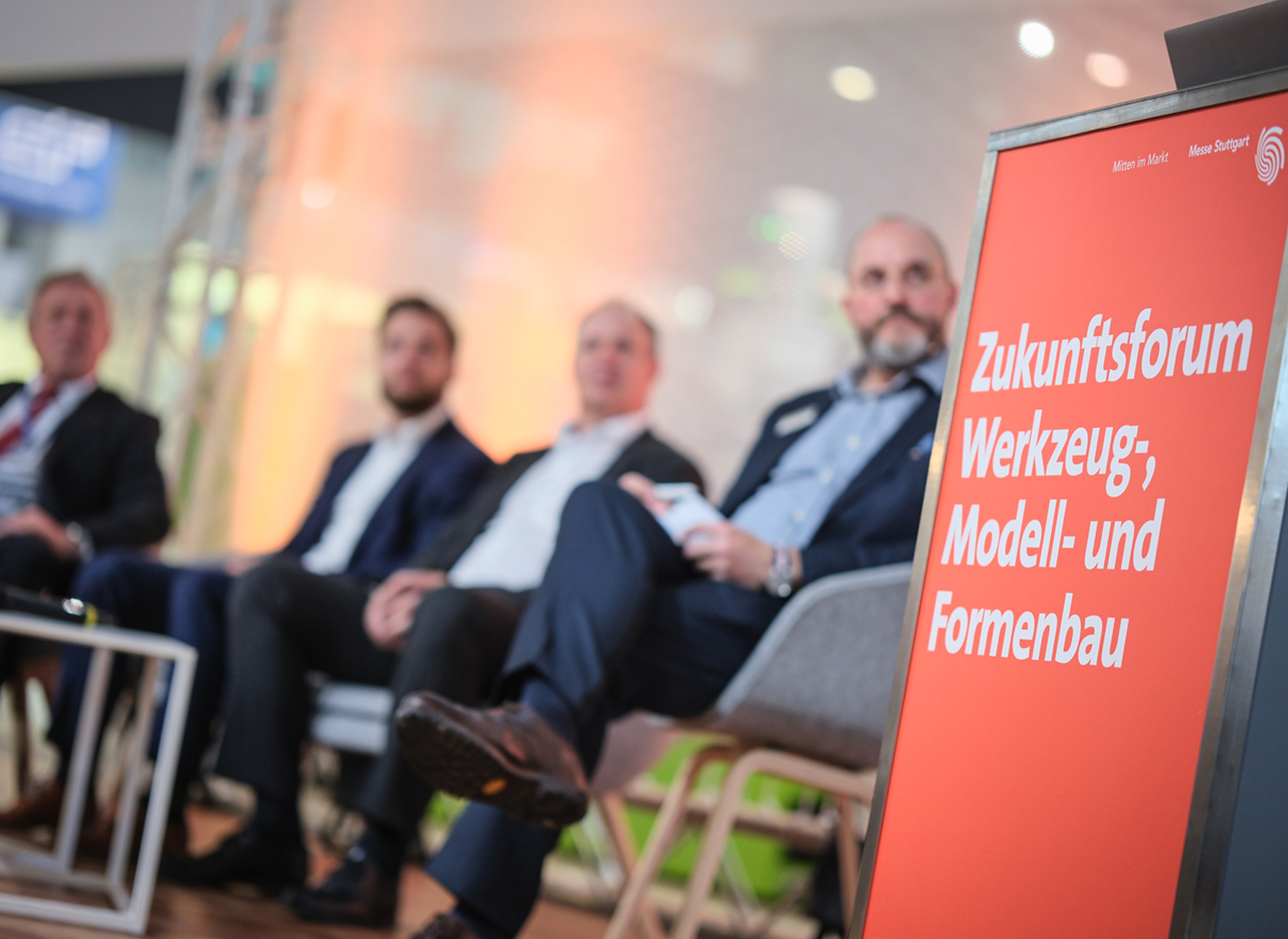Future Forum for Tool, Model and Mould Making
Lecture programme
15 June 2023
- 09:30 – Thought for the day – experts from "Marktspiegel Werkzeugbau"
- 10:15 – Automated ecological evaluation of tool production and use
- 11:10 – Innovations and applied research will ensure the future viability of the tool construction and mould making industry
- 11:45 am - Lunch
- 12:30 – Purchasers' Day – Welcome
- 12:40 – Purchasers' expectations regarding tool and mould making
- 13:10 – Frontloading instead of firefighting – developing robust products and processes
- 13:40 - Optimised process for commissioning and accepting forming tools
- 14:00 – Drafting of tool contracts; Act on Corporate Due Diligence Obligations in Supply Chains
- 14:30 – The industrial metaverse in a medium-sized value-added network - outlook: medium-sized companies and digitalisation
- 15:00 – Additive production (3-printing) and other important technical trends
- 15:30 – Purchasers' Day – conclusion, wrap up and farewell
Figures, data and specific action recommendations from and for the industry: the specialists from the expert team of the cooperative benchmark initiative will provide insights into the "inner workings" of the tool construction and mould making industry, describe strengths and weaknesses, and pass on action recommendations for improved competitiveness of companies.
Tool making companies are also being obliged by their customers to evaluate the sustainability of their processes and products. However, the tool making industry is characterised by small and medium-sized enterprises which often lack the know-how and capacity to comply with operating obligations. During the talk it will be explained how digitalisation and networking can be used to purposefully collect production data in order to attain the ecological effect of the tool construction and utilisation phase. Tool making companies will therefore be able in future to visualise instruments and potential for the ecological optimisation of tools, and position themselves as sustainable enablers for series production.
Cristian Lürken, WBA
Tool construction and mould making is a key industry in Germany. Prof. Seul, who is, for example, the President of the Association of German Tool and Mould Makers (VDWF) and a member of the Executive Committee of the Research Community for German Tool and Mould Makers (FDWF), will describe in his talk ways to better promote tool and mould making in Germany and its competitiveness. It is also necessary here to strengthen the scientific side and know-how transfer, and therefore develop the entire industry even further and support the leading international position of tool makers here in Germany.
Prof. Thomas Seul, VDWF/Schmalkalden University
Frithjof Kilp, Federal Association of Materials Management, Purchasing and Logistics (BME)
Manufacturers of tools and moulds make the greatest effort to produce top quality products. However, it is sometimes not easy to categorise purchasers' requirements. A purchaser will describe what he wants and what mistakes suppliers often make.
Christian Ott, August Mink
- Where are resources wasted in the product development process?
- Simultaneous engineering between article and tool design
- The role of purchasing and strategic suppliers in the concept and development phase
Prof. Dr. Tilko Dietert, FOM Hochschule
The new VDMA Standard 34195 can be used as an aid when commissioning and accepting forming tools. It promotes results-based cooperation, thereby effectively exploiting existing potential. The Standard can also be used to clearly improve the cost-income ratio for both parties. The package also includes advice on sustainability factors.
Alfred Graf Zedtwitz, VDMA
Purchasing of tools and moulds also involves some legal technicalities. Depending on the type of contract, part of the product may legally remain with the manufacturer. Purchasers therefore need the right touch when negotiating the contract details in order to avoid problems at a later date.
Martin Neupert, bnt Rechtsanwaltsgesellschaft
The German tool and mould making industry for plastic processing contains a large number of small and medium-sized companies. In order to cope with the forthcoming challenges, small and medium-sized purchasing departments will be forced to digitalise processes. However, this plan is often not put into practice in an organised manner.
Mirjam Zeller, Mittelstand-Digital ZentrumWertNetzWerke
Moulds and tools produced with the aid of a 3-D printer hold out the promise of great gains in efficiency, especially for the plastics industry. However, the utilised technologies are still new and, at times, unproven. We will look at the already established additive production processes and the right approaches for each individual process.
Prof. Tilko Dietert, FOM University of Applied Sciences
Frithjof Klip, Federal Association of Materials Management, Purchasing and Logistics (BME)
Lecture programme
| Contact Richard Pergler Tel.: +49 179 398 33 60 E-Mail: redaktion(at)perglermedia.de |


